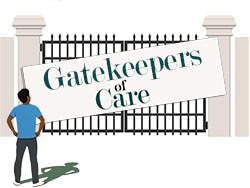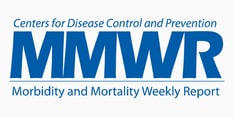
Mark Lewis, MD, saw the pain in his patient's body. The man's gastrointestinal tumor had metastasized to his bones. Even breathing had become agonizing.
It was a Friday afternoon. Lewis could see his patient would struggle to make it through the weekend without some pain relief.
When this happens, "the clock is ticking," said Lewis, director of gastrointestinal oncology at Intermountain Health in Salt Lake City, Utah. "A patient, especially one with more advanced disease, only has so much time to wait for care."
Lewis sent in an electronic request for an opioid prescription to help ease his patient's pain through the weekend. Once the prescription had gone through, Lewis told his patient the medication should be ready to pick up at his local pharmacy.
Lewis left work that Friday feeling a little lighter, knowing the pain medication would help his patient over the weekend.
Moments after walking into the clinic on Monday morning, Lewis received an unexpected message: "Your patient is in the hospital."
The events of the weekend soon unfolded.
Lewis learned that when his patient went to the pharmacy to pick up his pain medication, the pharmacist told him the prescription required prior authorization.
The patient left the pharmacy empty-handed. Hours later, he was in the emergency room (ER) in extreme pain — the exact situation Lewis had been trying to avoid.
Lewis felt a sense of powerlessness in that moment.
"I had been left in the dark," he said. The oncologist-patient relationship is predicated on trust and "that trust is eroded when I can't give my patients the care they need," he explained. "I can't stand overpromising and underdelivering to them."
Lewis had received no communication from the insurer that the prescription required prior authorization, no red flag that the request had been denied, and no notification to call the insurer.
Although physicians may need to tread carefully when prescribing opioids over the long term, "this was simply a prescription for 2-3 days of opioids for the exact patient who the drugs were developed to benefit," Lewis said. But instead, "he ended up in ER with a pain crisis."
Prior authorization delays like this often mean patients pay the price.
"These delays are not trivial," Lewis said.
A recent study, presented at the ASCO Quality Care Symposium in October, found that among 3304 supportive care prescriptions requiring prior authorization, insurance companies denied 8% of requests, with final denials taking as long as 78 days. Among approved prescriptions, about 40% happened on the same day, while the remaining took anywhere from 1 to 54 days.
Denying or delaying necessary and cost-effective care, even briefly, can harm patients and lead to higher costs. A 2022 survey from the American Medical Association found that instead of reducing low-value care as insurance companies claim, prior authorization often leads to higher overall use of healthcare resources. More specifically, almost half of physicians surveyed said that prior authorization led to an ER visit or need for immediate care.
In this patient's case, filling the opioid prescription that Friday would have cost no more than $300, possibly as little as $30. The ER visit to manage the patient's pain crisis costs thousands.
The major issue overall, Lewis said, is the disconnect between the time spent waiting for prior authorization approvals and the necessity of these treatments. Lewis says even standard chemotherapy often requires prior authorization.
"The currency we all share is time," Lewis said. "But it often feels like there's very little urgency on insurance company side to approve a treatment, which places a heavy weight on patients and physicians."
"It just shouldn't be this hard," he said.
This is part of our Gatekeepers of Care series on issues oncologists and people with cancer face navigating health insurance company requirements. Read more about the series here.
Please email vstern@medscape.net to share experiences with prior authorization or other challenges receiving care.




Comments